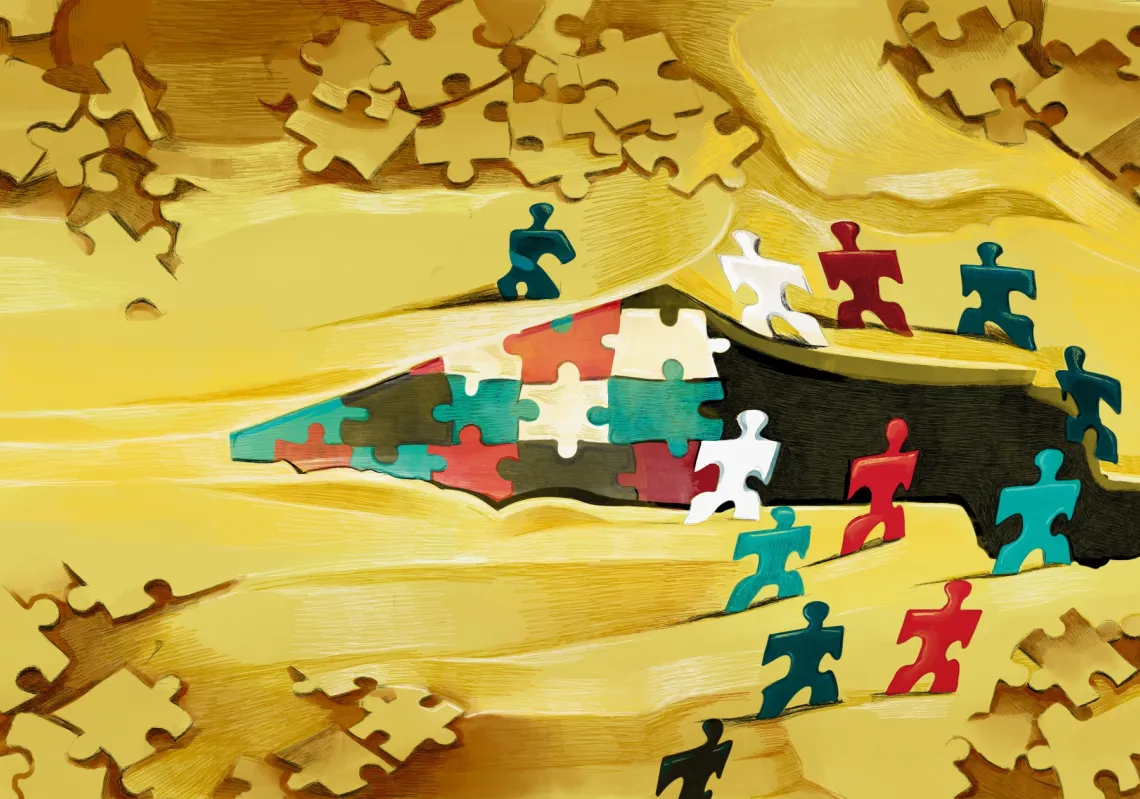“Get well soon, Mother of Champions” said a statement by Mohamed Anwer Essmat Sadat, the nephew of the late Egyptian President Anwar Sadat, announcing that the health of the former Egyptian first lady Jehan Sadat has deteriorated recently as she was admitted to hospital, and praying for her recovery.
The statement lauded the lady’s humanitarian, social and family achievements, citing her resolve and strength in supporting her late husband during his ascent to power until his assassination, and depicting her as an “astonishing example of a wife and a mother”.
Until recently, Jehan used to appear occasionally on Egyptian talk shows where she spoke about her own ideals, her husband’s legacy and the potential she sees in every young Egyptian girl and woman.
Jehan Safwat Raouf was born in Cairo, Egypt on August 29, 1933 to an upper-middle class family. Her father, was an Egyptian surgeon while her mother, Gladys Cotterill, was an English woman who worked as a music teacher. From a young age, Jehan was a unique individual who did not always follow paths that society and conventions expected of her.
At the young age of 15, Jehan started hearing of a local revolutionary called Anwar Sadat who participated in several movements resisting British occupation of Egypt. Anwar’s background was vastly different from that of Jehan’s. He originally hailed from the Egyptian governorate of Menoufiya. Jehan and Anwar eventually met after he served a lengthy prison sentence due to his political activities, and they fell in love despite the 15-year age gap.
Jehan’s parents were not happy with the fact that she fell in love with a poor revolutionary who at the time was jobless, divorced and had children from his first marriage. In spite of her parents’ objections, love won and they were married in 1949.
Anwar joined the Free Officers Movement which toppled King Farouk in the Egyptian Revolution of July 1952. Gamal Abdel Nasser, the de facto leader of the group, eventually became the new president of Egypt while his close confidante Anwar became his vice president. Both men remained loyal friends and partners until Nasser’s sudden death in 1970, which meant that Anwar then become his successor and the third President of Egypt. Subsequently, Jehan would be the new First Lady of Egypt.
During Sadat’s first years as president, he was solely focused on retrieving the Sinai Peninsula, occupied by Israel during the 1967 war. From day one, Jehan was supportive of her husband’s ambitions and understood the importance of retrieving this lost land. Jehan stood by his side both during the October 6 War in 1973, and during his diplomatic efforts to establish peace with Israel in exchange for Sinai.
As a First Lady, Jehan never followed set paths expected of her and she wasn’t going to change that aspect of personality. She wanted to give women better opportunities.
Jehan played a key role in reforming Egypt's civil rights laws during the late 1970s. She persuaded her husband to enact several laws, often called "Jehan's Laws", which granted women a variety of new rights, including those to alimony and custody of children in the event of divorce, in addition to a law which set aside 30 seats in parliament exclusively for female MPs.
Despite the fact that she didn’t attend university during her youth, she decided in to pursue higher education in her early 40s in order to become a leading example for girls and women. She gained a BA in Arabic Literature at Cairo University in 1977, then a MA in Comparative Literature in 1980
On October 6, 1981, Anwar Sadat was shot dead, during an annual military parade commemorating the October 6 War, by a group of armed men affiliated with Islamists. Jehan, meanwhile, was sitting behind a bulletproof glass wall and was safe from the assassin’s’ shots. Vice president and eventual successor Hosni Mubarak, managed to escape the attack with minimal harm.
The date October 6, became a day of mixed feelings for Jehan - while she remembers it as one of Egyptian victory, it was also as a day of tragedy and grief when her husband lost his life to a group of terrorists.
After a year of isolation and grieving, Jehan pursued PhD in Comparative Literature at Cairo University. Later, she taught at several universities in the US including the University of South Carolina, Radford University and the University of Maryland. She wrote her own autobiography called “A Woman of Egypt”, published in 1987. Her second memoir, “My Hope for Peace”, was released in March 2009. She received several national and international awards for public service and humanitarian efforts for women and children.









